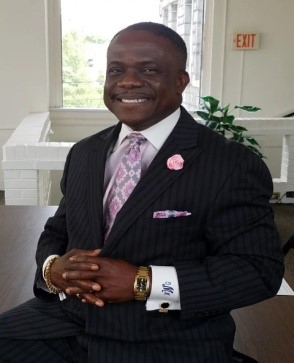Millennials’ Participation in the Future of the AME Church
By Dr. Orlando M. McCauley, Jr., 7thEpiscopal District
Like the apostle Paul who expressed concerns for his fellow Jews in Romans 9-11, I am a son of African Methodism, born and reared in a parsonage in my native land of Liberia with a passionate concern about the future of our church. I submit that I don’t see a dark and gloomy future for our Zion but a challenging one. If we fail to address it, it could adversely impact our global sense of mission.
I shall attempt to underscore one of two areas I believe we must take a proactive stance with intentionality if we desire to forge ahead with a brighter future for our Zion. The first concern for me is the gradual departure and decline of millennials in the church. Secondly, it is funding our global enterprise.
At the December 2018 CONVO, held in Atlanta, Georgia, I was privileged to participate in two sessions: one dealing with millennials and the other addressing the budget. The presenter on the millennials, the Rev. Katrese Kirk, was superb and provided antidotes with practical implications aimed at helping us grapple with and address some ways we can chart new courses of actions. Our Episcopal leaders are aware of this and are marshaling forces and resources. An example of this is seen in the 7ThEpiscopal District, where the Rev. Samuel Green has been appointed the Christian Education Director and proven to be capable and innovative. The past Leadership Congress, featuring youth and young adults, held in Greenville, South Carolina, was phenomenal!
At the CONVO, the ultimate question that dominated the session I attended was, “What can be done to remedy this existential threat?” The proposals emanating from the session must be taken seriously to combat, correct, and codify new avenues as solutions. Since the issues relating to millennials’ participation or lack thereof are indeed an existential threat to the Church’s future, our leaders must explore, harness, and utilize the gifts and giftedness of millennials so as not to stifle the denomination’s holistic approach to reaching all people with the message of transformation and empowerment.
Some key factors were identified in our session. In my opinion, it is a self-inflicted wound when millennials feel invalidated and un-affirmed as a growing segment in our denomination. We cannot and should not be inclined to think they have nothing to offer.
Secondly, we must be willing to allow millennials to educate us about ways in which their gifts can be utilized both locally and globally. This will help advance the Kingdom’s agendas: using evangelism, music, arts, and social justice advocacy.
As a father of four, with one millennial who is a graduating senior at Howard University, and three teenage sons, I have learned and adapted quickly to the new age and its technological advancements. Allowing the young adult members and my teens to meaningfully participate in the church’s life and ministry have contributed and motivated me passionately to write this article. I hope to explore this topic further.
Dr. Orlando M. McCauley, Jr., serves as the pastor of St. Matthew AME Church in Hamer, South Caroliuna, located in the Florence-Dillon District, Northeast Conference, Seventh Episcopal District.





